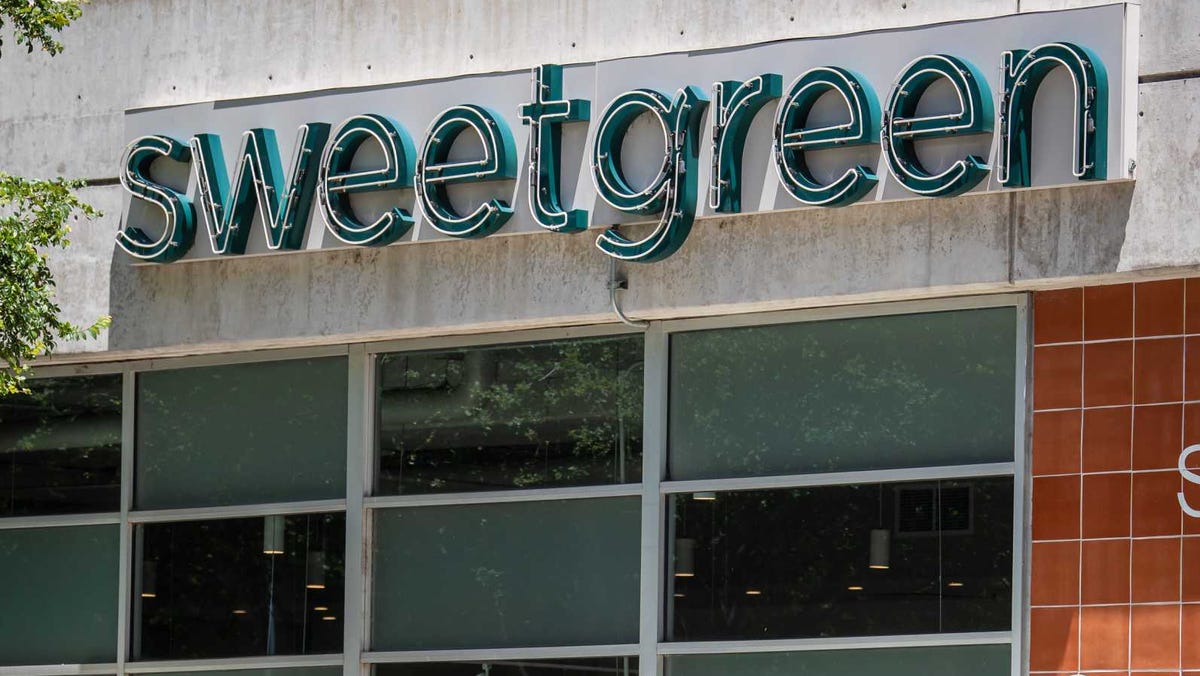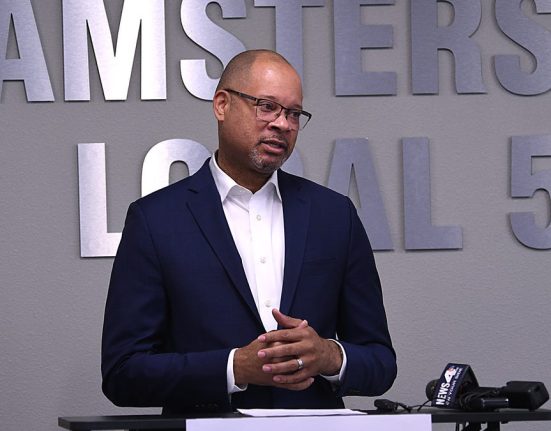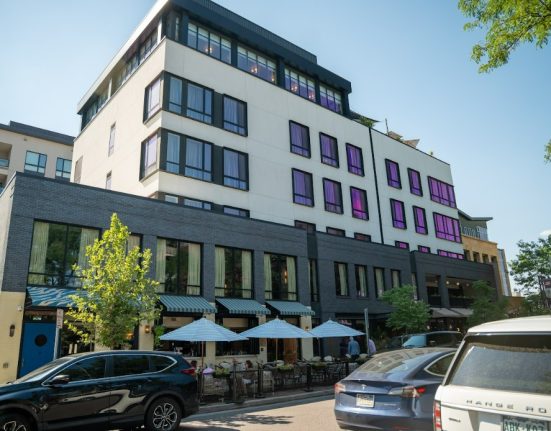In early spring, Austin Mayor Kirk Watson delivered a snarky quip while describing the dire and unprecedented budget shortfall facing the city.
“If the keyboard warriors want to troll through the city of Austin budget to find actual inefficiencies and waste, I’m all for it, because we’re going to need everything we can find in this coming budget cycle,” Watson told the Real Estate Council of Austin on March 5.
In the days and weeks that followed, Austin’s top administrator, City Manager T.C. Broadnax, continued what had become a costly habit: charging lunches to his city credit card on a near-daily basis.
Broadnax, one of the highest-paid city managers in the country with an annual salary of $488,800, expensed about 150 lunches during his first year on the job at a cost of about $3,300, according to an American-Statesman review of city discretionary spending. His go-to spot was Sweetgreen, a pricey salad chain where he averaged $20 per order.
Broadnax is not the only city leader who regularly dined on taxpayer dollars in what appears to be a violation of city policy, the Statesman review found. And the spending went beyond food.
The review covered food and travel spending records from the City Manager’s Office and City Council offices from May 2024 to May 2025 — the first year of Broadnax’s tenure — and found charges for business-class flights, high-end dinners and retirement parties costing thousands of dollars.
The Statesman also tallied thousands of dollars spent on snacks and beverages, protein shakes and even chewing gum.
Overall, the review painted a picture of a widespread culture of lavish spending at City Hall among both the city’s top appointed executives and elected leaders who approve the budget.
Experts who reviewed the newspaper’s findings and city spending policies said many charges likely violated internal rules or common ethics guidelines.
“Bring a sandwich for Christ’s sake,” said Cal Jillson, a political science professor at Southern Methodist University.
City leaders defended their spending habits to the Statesman. Broadnax initially did the same with his Sweetgreen lunches, telling the newspaper in an early July interview: “I obviously want to be healthy.”
Weeks later, he sent a statement that conveyed a change of heart and confirmed he would repay the city for the solo meals — though he never explicitly acknowledged a policy violation.
“This examination of discretionary spending has highlighted a need to do a better job of educating people on the policy and ensuring that it is being followed carefully and precisely,” the statement said.
The revelations come as the city faces its most serious budget crunch in recent memory.
Earlier this month, Broadnax proposed a $6.3 billion austerity budget that calls for a shuffle of police and firefighter staffing, a drawdown of money to help build affordable housing and the use of $14.1 million in reserves to offset limited property tax revenue. The 11-member City Council is slated to vote on the budget in August.
For his part, Watson charged a working lunch just nine times during Broadnax’s first year.
“The work in City Hall is constant and has us in our offices many days and often during meal times,” Watson told the Statesman. “Each of us must use good and professional discretion on what we do and how we pay for meals.”
Spending continued as budget gap widened
The financial cliff the city is facing has long been in view of city leaders. Presentations as far back as April 2024 showed a cascading budget shortfall growing to tens of millions of dollars by the end of the decade.
Broadnax has been aware of the looming budget crisis since he started the job, and he’s said addressing it is one of his top priorities. But the reality of the city’s finances appears not to have changed the discretionary spending habits of its leaders, particularly in the City Manager’s Office.
The office so far during Broadnax’s administration has spent about $4,700 on retirement parties for four departing executives. The most expensive was nearly $1,700 at Chuy’s for a department head.
Records show that Broadnax’s taxpayer-funded Sweetgreen orders started before his first day on the job. Two charges are listed for April — after City Council hired him but before his May 6 start date. He also expensed a Sweetgreen lunch on his first day.
The chain’s downtown location is a short walk from City Hall.
Broadnax initially told the Statesman he was justified in expensing the meals because he typically doesn’t have the time to go out for lunch. “I was advised that that’s how we’ve approached lunches here,” he said in an early July interview.
Previous city managers appear to have been no more frugal.
A separate Statesman review of discretionary spending by Broadnax’s two immediate predecessors revealed similarly liberal discretionary spending, though neither regularly charged solo meals.
During Interim City Manager Jesus Garza’s 14-month tenure, his office spent $850 on a dinner at III Forks — a pricey steakhouse that bills itself as “the essence of Texas luxury.”
One of his top lieutenants spent $2,000 on a public safety retreat at the exclusive Headliners Club. Since April 2024, records show the city has paid more than $10,700 in membership fees to the club, an invite-only social venue where influential business and community leaders go to hobnob.
Garza declined to comment.
Council members justify high-priced meals and travel
Some Austin City Council members have also pushed the limits of the city’s spending policies, according to the Statesman’s review of discretionary food and travel charges from May 2024 to May 2025.
Like Broadnax, Council Member Ryan Alter regularly expensed solo meals, doing so more than 70 times at a cost of $1,200.
Alter, whose district spans much of South Austin, defended the charges as both necessary and above-board.
“If I need to grab a lunch or grab a breakfast taco, but I can keep doing my work here, that’s what I do,” he said.
“My understanding is that is well within the allowable expenses,” he added during an early July interview.
Alter also treated his staff to a taxpayer-funded meal at least 14 times during that year, in one instance expensing a $775 holiday dinner at the chic Mexican restaurant Comedor for his staff and their spouses.
“My staff works very hard, and their families are a part of that,” Alter said. “I like to be able to take them out somewhere nice at the end of the year.”
Other current council members have also used city funds to pay for staff to pay for food for their staff, but most charged few, if any, solo meals.
One recently departed council member didn’t spend a dime on food during her last eight months in office: conservative fiscal hawk Mackenzie Kelly.
“As a government employee, I wanted to be very careful how I spent taxpayer dollars,” she told the Statesman, noting that she used her own money to cover things like staff birthday celebrations.
But another recently departed council member embraced the spending culture at City Hall. During the final months of her term, Leslie Pool held an “office dinner” five times at III Forks.
In 2024, the German government gave Pool more than $1,200 for an airline ticket to Frankfurt for a cultural exchange trip, but she wanted to fly business class. So, she charged more than $6,000 extra to the city of Austin “as total flight time was 9+ hours each way,” her staff wrote in an email justifying the expense.
Pool, in a statement responding to questions from the Statesman, stood behind the expenditures.
“All spending in my Council office was done in alignment with city rules — Financial Services staff review and approve all spending,” she wrote.
In 2024, Pool also sent two staffers to São Paulo, Brazil for a climate conference. They both flew business class at a cost to the city of nearly $20,000. Pool was slated to present on two panels at the conference but came down with COVID-19 shortly before the trip, she said.
“Missing that conference was one of the biggest regrets I had,” she wrote.
She added that the money came from her council office budget, which she never exceeded.
Many council members and their staffers also took trips across the country and internationally during the same time frame. Those officials, however, typically flew economy.
“The appearance of impropriety”
Roughly 2,000 Austin employees — from executives to assistants — hold city-issued credit cards. To receive one, they must pass background checks, complete training and follow a strict policy that warns against even “the appearance of impropriety.”
The policy prohibits routine meals and says food purchases must serve a business purpose, such as recognition events or emergency operations.
“Accountholders are advised to use sound judgment, avoid the appearance of impropriety when spending City funds, remember that all data related to the ProCard program is subject to open records requests, and be able to provide full documentation and a sound justification for any purchase,” the credit card policy reads.
The document refers employees to a 2006 policy memo for rules specific to food spending.
“It is never appropriate to use City funds to pay for employee meals or food on a regular basis,” the memo states.
Jillson, the SMU professor, said Broadnax and Alter’s frequent lunch expenses appear to violate city policy because they were routine.
Broadnax pledged to repay $3,780 for his solo lunches.
“The vast majority of City of Austin employees who use a City-issued credit card do so in a manner that is 100% compliant with our policy,” he said in a recent statement. “While it has been a past practice to expense working lunches, there appears to have been a lack of understanding of the policy that I will rectify immediately.”
Public trust at stake
City policy allows food purchases that fulfill a “business purpose,” like feeding staff during unusual work hours or for special employee recognitions.
But what constitutes a “business purpose” is ultimately subjective, said Central Texas-based ethics attorney Andrew Cates.
Austin’s rules are “about as minimal as you can get while still having a policy,” he said. “There’s just all kinds of ways that you can parse the words to make it okay.”
In addition to lunches and other expenses, city records show city management staff also made sure that executives had a well-supplied conference room — and paid for personal beverage orders, including $344 for pre-made protein shakes for the office of one of Broadnax’s executives, Eddie Garcia, who oversees public safety agencies.
Garcia said he believed the orders were part of routine stocking of the executive suite.
“I’m putting a stop to it right now,” he said.
Staff also spent nearly $300 on energy drinks for Austin police officers who provide personal protection to Broadnax.
Taken together, the charges represent a drop in the bucket when stacked against the city’s multi-billion-dollar budget. But Jillson and other experts say spending on things like food and travel are typically among the first to be cut when a city is looking to tighten its belt.
“These are not huge amounts of money, but they suggest that public funds are not being as carefully extended as they might be,” Jillson said.
Miha Vindis, a political science professor at Texas State University, said the spending habits of top brass set the tone for all city employees.
“Even if the amounts are small, choosing not to expense routine meals or discretionary items spending sends a powerful message about shared sacrifice and commitment to good governance,” Vindis said.
Cates also noted that the optics of unnecessary expenditures can be used as ammo for political opponents, and that’s typically something elected officials take into account.
When Cates first started his political career at the Capitol, he said his boss told him: “Above all, think about your decision making. How would this look on the front page of the paper?”







